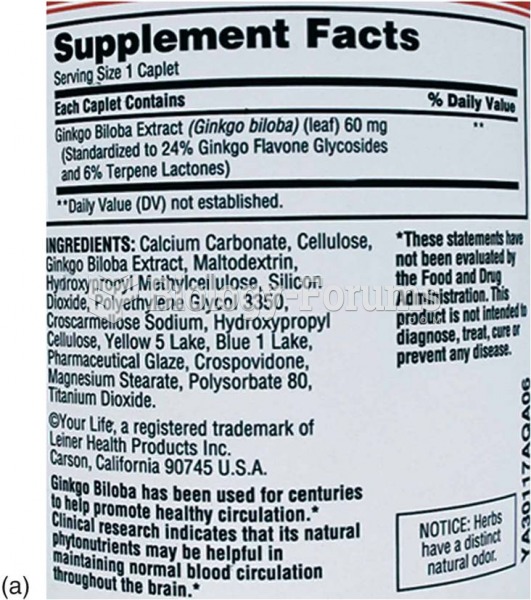|
|
|
The most dangerous mercury compound, dimethyl mercury, is so toxic that even a few microliters spilled on the skin can cause death. Mercury has been shown to accumulate in higher amounts in the following types of fish than other types: swordfish, shark, mackerel, tilefish, crab, and tuna.
All adverse reactions are commonly charted in red ink in the patient's record and usually are noted on the front of the chart. Failure to follow correct documentation procedures may result in malpractice lawsuits.
There are more nerve cells in one human brain than there are stars in the Milky Way.
The familiar sounds of your heart are made by the heart's valves as they open and close.
Illicit drug use costs the United States approximately $181 billion every year.
 Hip Typically occurs as a result of a fall; with osteoporosis, hip fractures can occur as a result o
Hip Typically occurs as a result of a fall; with osteoporosis, hip fractures can occur as a result o
 Two ginkgo biloba labels, note the lack of standardization in (a) 60 mg of extract, 24% ginkgo flavo
Two ginkgo biloba labels, note the lack of standardization in (a) 60 mg of extract, 24% ginkgo flavo





